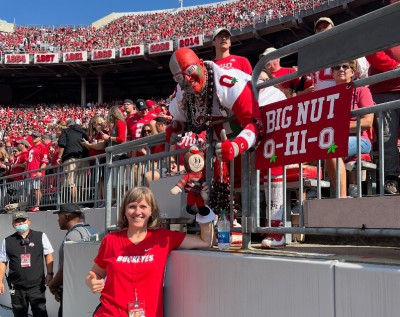Words are powerful and being intentional and thoughtful about how we talk about our work matters.
I was recently in a meeting where accountability was presented as a core principle. I know that this was well-intentioned and is a common way to think and talk about effective management. The problem with using accountability as a framework for leadership is that its goal is compliance. It relies on hierarchy and invokes fear and resistance.
In the Wiser Way training at Temple University, Eric Brunner presented a concept that resonated with me and changed how I talk about and approach my work. Here is the information he presented:
- Accountability is doing what you are supposed to do because someone else expects it of you, accountability springs from the extrinsic motivation of reward and punishment. Merriam-Webster Dictionary definition of accountability: “Subject to having to report, explain or justify; being answerable, responsible.” The core metaphor for accountability is “I’m holding your feet to the fire.” (Does that sound like fun? No wonder so many people subconsciously go into avoidance mode when told they will be “held accountable.”)
- Ownership is doing what needs to be done because you expect it of yourself, ownership springs from the intrinsic motivation of pride and engagement. Merriam-Webster Dictionary definition of ownership: “The state, relation, or fact of being an owner,” which in turn is defined as “to have power or mastery over.” The core metaphor for ownership is “I’m transferring title to you, or I’ll own that.”
This shift in thinking is helpful whether you are a manager or subordinate because the fundamental question that needs to be answered changes to, “What information and authority are needed for me to transfer or take ownership of this task or project?” That question implies autonomy and trust.
What would change if you approached your working from the mental model of ownership instead of accountability?
How does this concept apply when you are the one managing or the one being managed?


